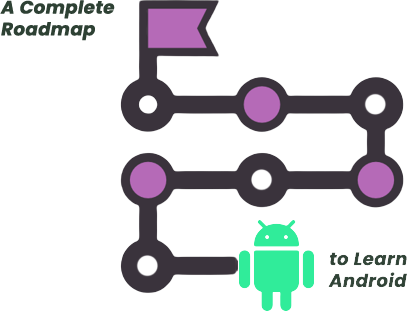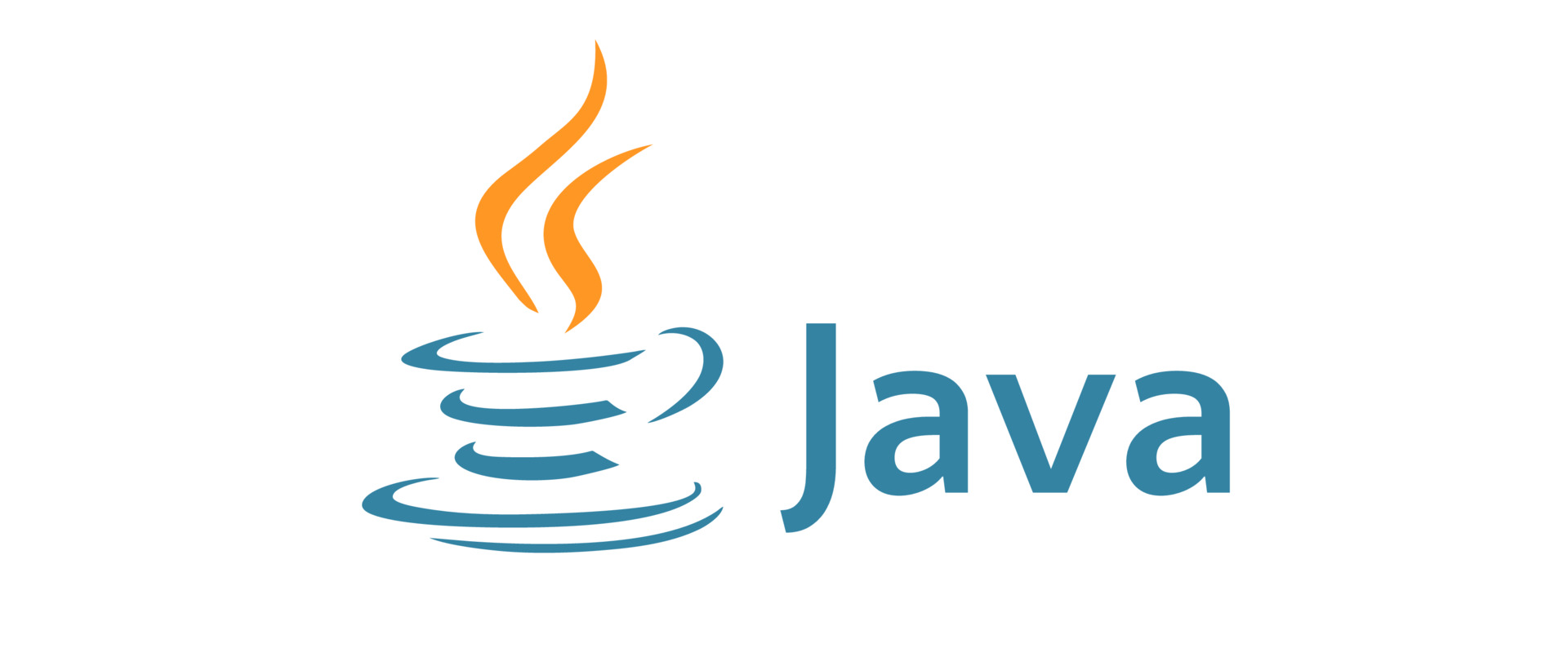
Android is an open-source operating system, based on the Linux kernel and used in mobile devices like smartphones, tablets, etc. Further, it was developed for smartwatches and Android TV. Each of them has a specialized interface. Android has been one of the best-selling OS for smartphones. Android OS was developed by Android Inc. which Google bought in 2005. Various applications like games, music player, camera, etc. are built for these smartphones for running on Android. Google Play Store features quite 3.3 million apps. Today, Android remains dominant on a global scale. Approximately 75% of the world population prefers using Android as against 15% of iOS. It is an operating system that has a huge market for apps.
Why Android ?
So before jumping into the complete Roadmap of Android one should have a clear goal in his/her mind that why he/she wants to learn Android? Is it for your college academic projects? or is it for your long-term career? or do you want to build your apps to start your business? So first make a clear goal. Why do you want to learn Android? For example, if you want to learn Android for your college Academic projects then it’s enough to just learn the beginner things in Android. Similarly, if you want to build your long term career then you should learn the professional or advanced things also. So it’s on your hand and it’s your decision why you want to learn Android.
How to Learn Android
In Android, programming is done in two languages JAVA or Kotlin and XML(Extension Markup Language). The XML file deals with the design, presentation, layouts, blueprint, etc (as a front-end) while the JAVA or KOTLIN deals with working of buttons, variables, storing, etc (as a back-end). And the biggest confusion for an Android beginner is which language to choose between Java and Kotlin? So let me try to overcome the confusion first. Java or Kotlin? Kotlin is the official language for Android App Development Declared by Google and it is the most used language as well. Many of the apps in the Play Store are built with Kotlin and it is also the most supported language by Google. Kotlin is fast and easy than java. Kotlin also include Lot of new features and libraries that is not present in Java. Java is the native language used by Android, applications that helps to communicate with the operating system and hardware that directly uses Java. This language allows the creation of any program and supports almost all types of machines, and OS X be it Android, Windows, or Linux. Java was developed by Sun Microsystems (now the property of Oracle) and one can use Microservices with Java. Kotlin is a cross-platform programming language that can be used as an alternative to Java for Android App Development. It has also been declared “official” language by google . The only sizable difference is that Kotlin removes one of the features of Java such as null pointer exceptions. It also removes the use of semicolon at the end of every line . In short, Kotlin is much simpler for beginners as compared to Java and Now most of developer also shift from java to Kotlin for Android App Development.
A Roadmap to Learn
Start With a Programming languages
Software engineering requires you to learn a programming language, and in Android’s case, there are two major programming languages used- Java and Kotlin. Learning Kotlin is a good place to start because the language has been developed by Google as a replacement for Java.
Java

When Google revealed the first version of their Android OS over a decade ago, they adopted Java as the main language for Android application development. But why Java? As one of the oldest object-oriented languages, Java is easy to learn and it works well on the Dalvik virtual machine, which was inspired by Java Virtual Machine (JVM), making it portable for almost any device and operating system. So, when Google began building the Android system, Java was one of the most suitable languages.
Kotlin

Kotlin was born from JetBrains. It was initially designed for the JVM environment and combines functional and object-oriented programming. Since its release, Kotlin has become a rising star in Android development and other fields. Here are a few reasons why Kotlin pairs so well with Android: Interoperability: Kotlin is 100% interoperable with Java and supports great interoperability with JVM environments. Safety: Android apps that contain Kotlin code are 20% less likely to crash according to the Android docs. Asynchronicity: Kotlin’s use of coroutines allows it to provide asynchronous (non-blocking) programming support. In addition to the points above, Google announced their Kotlin-first approach to Android development at Google I/O 2019. Since the announcement, the number of applications built with Kotlin has increased exponentially. So if you were to start learning Android development now, Kotlin would be a great choice.
Understand The Android Application Lifecycle
One of the biggest differences between writing an application for desktop and mobile is that, while the operating system can manage the application on a desktop, you code your mobile application for handling external events. This means you need to design your application in a way that it interacts well with other applications on your phone. For instance, your application should be programmed to work the ideal way when the phone receives a text or a call. When you have this understanding, you can create an app that offers the best user experience.
Learn the Basics of an Android Platform
The Android platform has various components, and it is essential to know these fundamental components and how to work with them to be proficient in developing functional android apps. A well-planned android application development training course will familiarize you with these basic components that help in handling the configuration changes of the app, working with the components of the app, testing the units, and following standardized practices for security and navigation. Once you know about these elements of the android platform, you can use various tools to design the app.
Get to Know the Android Tools
Every beginner android developer should be aware of the most significant tools for android
development and the knowledge of using those tools. The first tool you need to get acquainted
with
is Android Studio, which is the official IDE (Integrated Development Environment) for developing
android apps.
Integrated Development Environment is a software that brings together the most common tools used
by developers in the form of a single graphical user interface. IDE is used for writing and
testing software through different phases of development, such as building, coding, and testing.
Android Studio helps enhance your productivity as it lowers the setup time while standardizing
the
process of development. You can write android apps for different devices like mobile phones,
watches, TVs, etc., using Android Studio.
Another tool you need when developing android apps is a Version Control System tool, preferably
Git, which is used for coordination among developers, keeping track of changes in the codebase,
and going back to the older versions when needed. One major advantage of learning to use Git is
that it offers you the flexibility of handling both small and large-sized projects with
efficiency
and speed.
Finally, you should be familiar with Gradle- a build automation tool which is part of the
Android
Studio. Gradle allows you to compile, build, and publish android applications.
Start with Small Projects
When you have a basic understanding of the android platform and common tools useful for developing an application, contributing to open source is a good way to put your knowledge to test and practice. However, make it a point to start small as a beginner and make slow yet meaningful progress to bigger projects. When you contribute to open source, you can interact with your peers and the community, which can also bring opportunities your way. You will find a range of projects on GitHub, which are generally open to the public. These projects are of various types, such as bug fixing, reviewing a project, and much more. You can open an issue and start working on the project to master your coding and app development skills.
Job Roles and Responsibilities of an Android Developer
The basic responsibility of an android developer is to design and develop Android-powered applications and integrate them with back-end services. Android developers are also required to coordinate with various other teams and individuals, such as the design team, engineers, and other developers, to work on the multiple layers of the infrastructure. They also add new features and tweak an existing android application to update it and make it more user-friendly. This also involves fixing bugs and reconstructing the performance of the application. Finally, being an android developer is a lifelong journey of learning and exploring new ways to add efficiency to the application development process and evaluating how technology can be leveraged to enhance the features of the app. As a budding android developer, you can choose to freelance or work at a start-up or for an established organization. While the way you work in different settings might differ with respect to the work culture, your roles and responsibilities would be more or less the same. Some of the common job roles that Android developers are hired for include- Mobile App Developer, Mobile Architect, Android Engineer, Embedded and Lead Software Engineer for mobile.
Job Trends
When android was first launched, it ranked 5th among the most commonly used operating systems for developing applications. Later, as it offered various advantages and was an open-source platform, it soon catapulted to ranking as the #1 mobile platform with time. This has definitely increased the demand for proficient android developers. As per the latest trends, the demand for android applications is on the rise, and this has generated a growth in opportunities for android developers. With approximately 25,000 openings for Android application development in India, the scope in this field is expected to grow exponentially in the coming years.
FAQ's
1. How long does it take to become an android developer?
Becoming an Android developer can take as little as 3 months or 4 years. It all depends on how quickly you master the programming language.
2. Is Android development a good career?
Learning Android development opens up many professional options, including freelancing or employment with household names like Google, Amazon, and Facebook.
3. Do Android developers need a degree?
Your chances of becoming successful as an Android developer can be improved by having a bachelor's degree in a relevant subject like computer engineering, information technology, or computer science.
4. What qualifications are needed to become an android developer?
A bachelor's degree, diploma, or technical training in computer science is the minimum required qualification to become an android developer.
5. Will a career in Android development have a future?
Everything has moved online in the modern world, and most people find mobile devices more user-friendly than desktops or PCs. Out of the 2.5 billion Android device users, the need for Android developers has grown quickly and has a bright future.